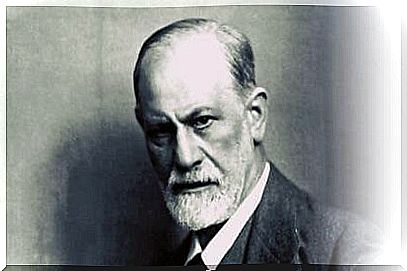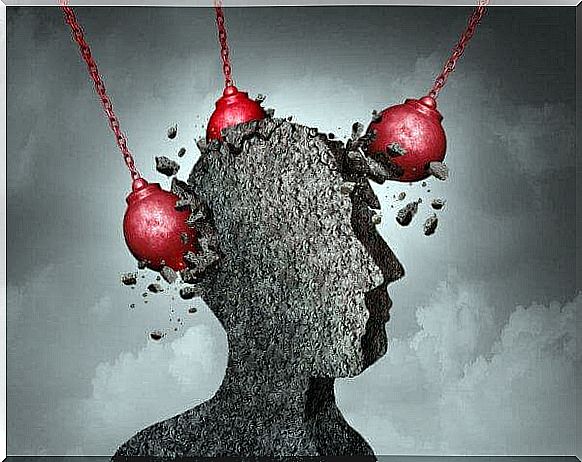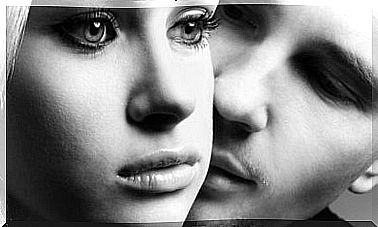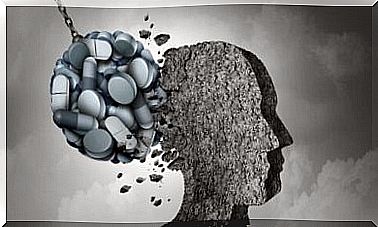How To Develop A Strong Ego According To Sigmund Freud

A strong Ego, according to Sigmund Freud’s theories, is the entity capable of understanding its own needs and, at the same time, intuiting the limits established by society. We must therefore be able to move freely, bringing to light internal repressions and knowing how to move in our daily environments to act with integrity and satisfaction.
We could start by saying that many of the substrates that nourished psychoanalysis in its day are no longer valid today. No doubt obsolete ideas about penis envy or female hysteria are left behind. However, it must be said that psychoanalysis is still valid, combined with other techniques to adapt to current times.
The sacred fire lit by the Viennese witch (as they called Freud for introducing a type of therapy as innovative as it was risky at the time) is still in force, but losing some of the undeniable spark it had until a few years ago. Thus, as shown by studies such as the one carried out at the University of Linköping in Sweden, the main problem in psychoanalysis is the length of treatment.
This type of therapy requires sessions four times a week for as many months or years as necessary. Today, something like this requires a high commitment that is not always easy to fulfill. Today’s life, so demanding and characterized by immediacy, does not always fit into this long-term therapeutic scheme. Thus, it is more common to use short approaches and therapies.
Sigmund Freud would not accept this kind of approach. For him, one of the main goals of the psychoanalyst must always be to work on the patient’s Ego. To make this psychic force a healthy entity and thus heal any conflict that interferes with the person’s freedom and well-being.
Something like this takes time, high commitment and deep work.

A strong Ego amid limiting psychic forces
One of Sigmund Freud’s most interesting works was, without a doubt, From Neurology to Psychoanalysis. It should be noted that it is an unfinished book. Freud was in exile due to World War II, he was already very old and his health did not allow him to finish what was his posthumous and most revealing work.
The book was a synthesis and, in turn, a way to deepen his most relevant theories, such as, for example, the psychic apparatus, the interpretation of dreams and the psychoanalytic technique. The most notable aspects were the keys with which he further delimited the concepts of Id, Ego and Superego, which experts called the second Freudian topic.
For the first time, the famous Viennese psychoanalyst was immersed in what he defined as the “strong Ego” and the human being’s need to consolidate this entity in our psychic architecture. Now, something Freud himself reveals to us is how complicated it is for us to develop a healthier sense of the Ego.
These would be the reasons why many of us don’t feel fulfilled, happy or free.
Causes why we don’t develop a strong Ego
Within us, two opposing forces coexist. On the one hand, there is the Id, with its basic and elementary needs. On the other, the Superego, with that strict society that delimits our desires, aspirations, dreams…
- The Id, according to Freud, always needs something, always misses some unsatisfied dimension… It is restless, anxious, does not understand the past or the future, its hunger always lingers in the present moment.
- The Superego, on the other hand, is a complex entity that always forces us to put things off. It relegates our dreams, limits freedoms, controls our behavior… It is the social and cultural entity that shapes us and acts as a repressive force.
- The “Ego” is in the middle of it all. It cannot always reconcile needs with obligations, dreams and desires within the mold that society defines. Something like this often leads us to fail to develop a strong Ego, and more, to feel fragmented and lost.

How can we develop a strong, healthy and happy identity?
In the book From Neurology to Psychoanalysis , Freud explains that there are a number of factors that determine the fact that we cannot develop a strong Ego. The following causes are:
- An over-reliance on our parents. The Viennese psychoanalyst explained that children take longer and longer to mature, acquire skills in independence, resolution, initiative…
- Having lived through a childhood and adolescence marked by norms, punishments and rigorous education.
- Having grown up without affectionate and close figures capable of promoting a safe and optimal development.
As we see (and as expected), Freud placed great importance on the childhood period. However, what is really valuable in this posthumous work is precisely the advice it offers to form a strong Ego. These would be the keys:

- To form a strong Ego we don’t have to fight our Id or Superego.
- It is about achieving an adequate balance between these forces : a harmony between needs and obligations.
- To reconcile these energies, the repressed dimensions must be brought to light from both the Id and the Superego. In this task, hidden needs, impulses, unmet anxieties must emerge. Our childhood fears, traumas experienced, memories that we do not process should also be visible…
- Freud speaks, in turn, of the need to work on our independence. Once all these dimensions reach the outside, we are forced to live with them in a mature way.
- It is possible that for a part of our lives (according to this approach) we have lived under the idea that we were never loved as we deserved. It’s an unfulfilled wish that haunts us wherever we go. One way to create a strong Ego is to let go of that need, because every need creates submission, alienation and disease.
As we can see, many of the ideas proposed by Freud in the early and mid-twentieth century are still useful or, at least, worthy of some reflection. Strengthening the Ego is a task at which we must work daily for practically our entire life. Let us not, therefore, abandon this very healthy exercise.









